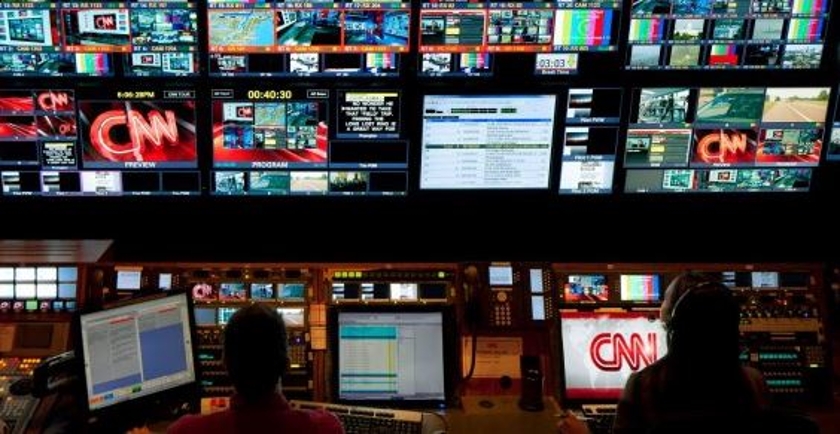
24-Hour News Deepening Partisan Divides
By Jacob Smith
We are living in an era in which news networks are constantly available to viewers. Theoretically, the expansion of the number of news networks and their 24-hour availability should have led to greater political discourse and a more informed public. However, many news networks began designing channels to appeal to viewers with specific political preferences. For example, Fox News was created to appeal to conservative viewers and MSNBC was designed for liberal viewers. These networks have caused partisanship to intensify throughout the country and for special interest groups to gain more importance in national politics. The newfound importance of special interest groups has caused many candidates to adjust their campaign strategies to appeal specifically to these groups. For example, Donald Trump is focusing his campaign on anti-immigration policies and is appealing to nationalists or nativists. Bernie Sanders is also focusing on these special interest groups by devoting the majority of his campaign to economic policy. However, by appealing specifically to these groups, they alienate the mass public and fuel partisanship in the country.
The creation of politically biased news networks has been disastrous on the political situation in the United States. These networks have polarized the American public between extreme liberalism and extreme conservativeness. Cass Sunstein, a University of Chicago law professor, argues that the number of choices offered to viewers is detrimental to political discourse. He claims that, “with the multitude of choices available on television…media consumers will select only the outlets that they find the most comfortable or familiar. These viewers are deprived an opposing view and…are directed towards greater division.” Since viewers are only exposed to one extreme version of politics, they become more partisan and are less open to opposing views.
The political situation in the United States has become increasingly partisan since the introduction of the 24-hour news networks. To many citizens, it has become acceptable to completely reject any cooperation or compromise with the opposite party. An example of this is the Republican Party’s open refusal to work with the Obama administration in 2008. Not only is the outright refusal to cooperate with the opposing party a fairly recent phenomenon in American politics, but so is its acceptance by the majority of the American public as well. Many people on each side of the political spectrum see nothing wrong with refusing to compromise, even though it is a basic characteristic of politics. This problem can be traced back to the damaging effects of politically biased 24-hour news networks.
The way in which political candidates now attempt to gain votes is another effect of the 24-hour news networks. Although there have always been special interest groups in the United States, they are more important to candidates now than they have ever been. By using 24-hour news networks, candidates can appeal directly to these groups. Some examples of special interest groups are the youth, Christians, or gun control groups. However, by appealing strictly to these groups, they ignore the mass public and target their own party base. This reinforces partisanship and divides the nation. Examples of this can be seen in recent presidential campaigns. Democratic candidates, such as Obama in 2008 and 2012, often appear on networks that target a younger demographic. Obama frequently appeared on shows like The Daily Show with Jon Stewart and the Tonight Show Starring Jimmy Fallon. Although these appearances may have increased his popularity among young voters, he was neglecting older voters by focusing most of his campaign on the young. The same can be said for Republican candidates, who focus the majority of their campaigns on middle-aged voters using conservative news networks. Each candidate is directing his or her political message to a certain group within society and ignoring the mass public, further dividing the nation into segments.
By sensationalizing news stories and using techniques such as issue framing, the process by which someone constructs a news story and places emphasis on certain aspects over others, news networks promote partisanship and demonize opposing views. Conservatives accuse Democrats of being socialists because of their policies, while liberals claim that Republicans’ policies are backward or even racist. It has now become acceptable to completely distrust the opposite party and view them as unpatriotic or un-American. 24-hour news networks have irreparably damaged the political climate in the country. Just as the introduction of free public schools greatly increased the knowledge of the American people, 24-hour news networks should have done the same. Instead they have instead fueled distrust between opposing views and have deprived viewers of balanced versions of news stories. There may not be a solution to these networks, which attract a large portion of viewers. We are now living in a society in which the average viewer cannot tell the difference between a news network that is fair and one that is politically biased.
Panelists discuss the impact of 24-hour news cycle on American politics